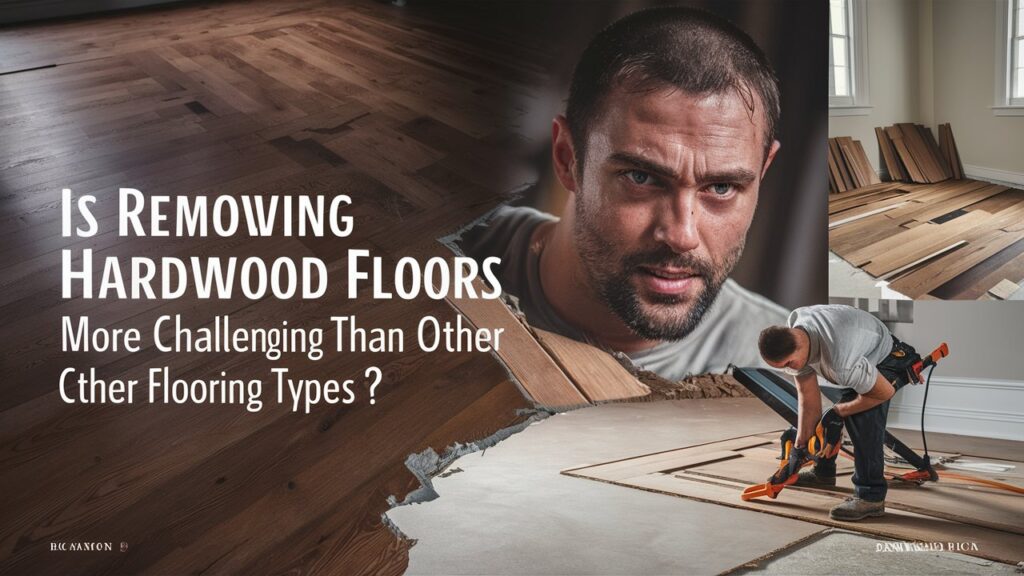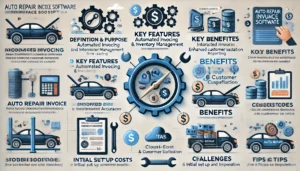When it comes to home renovations, changing your flooring can dramatically transform a space. But before you can lay down that beautiful new floor, you often need to tackle the task of removing the old one. Many homeowners wonder: is hardwood floor removal more difficult than dealing with other types of flooring? Let’s get into this question and explore the world of floor removal.
Understanding Different Flooring Types
Here are various flooring materials and their removal processes:
Hardwood Removal
Hardwood floors are beloved for their timeless beauty, but when it’s time for them to go, you might face some hurdles. Hardwood removal can be tricky because these floors are often firmly attached to the subfloor.
Key factors that affect hardwood removal:
- Installation method (nailed, glued, or floating)
- Age of the flooring
- Type of wood
- Condition of the subfloor
Older hardwood floors might be more challenging to remove due to stubborn nails or adhesives that have set over time. However, newer floating hardwood installations can be relatively simple to take up.
Vinyl Floor
Vinyl flooring has gained popularity due to its durability and water resistance. But when it’s time for floor removal, you might encounter some unique challenges.
Factors influencing vinyl floor removal:
- Type of vinyl (sheet, plank, or tile)
- Installation method (glued or click-lock)
- Age and condition of the flooring
- Presence of asbestos in older installations
Vinyl floor removal can sometimes be easier than hardwood, especially if it’s a newer, click-lock installation. However, glued-down vinyl can be a real challenge, often requiring special tools or chemicals to break the adhesive bond.
Read More Article: What Sets New York City Office Cleaning Services Apart
Removal of Bathroom Floor
Bathroom floor removal presents its own set of challenges. These spaces often have multiple layers of flooring due to renovations over the years, and moisture can complicate matters.
Unique aspects of floor removal:
- Potential water damage
- Multiple flooring layers
- Working in tight spaces
- Presence of fixtures like toilets and vanities
While floor removal might not be inherently more difficult than hardwood or vinyl, the confined space and potential for water damage can make it a complex task.
Comparing the Difficulty: A Helpful Table
To give you a clearer picture, let’s compare these flooring types in terms of removal difficulty:
| Flooring Type | Ease of Removal | Common Challenges | Special Tools Needed |
| Hardwood | Moderate to Difficult | Nails, adhesives, potential subfloor damage | Pry bar, circular saw, floor scraper |
| Vinyl | Easy to Difficult | Adhesive residue, potential asbestos | Heat gun, chemical strippers, floor scraper |
| Bathroom | Moderate to Difficult | Moisture damage, multiple layers, tight spaces | Utility knife, pry bar, moisture meter |
As you can see, each flooring type presents its own set of challenges. The difficulty often depends more on the specific installation and condition of the floor than the material itself.
When to Call in the Pros
While many homeowners enjoy DIY projects, most of the time it’s best to hire a floor removal company. These professionals have the tools, experience, and knowledge to handle even the most stubborn floors.
Consider hiring a floor removal company when:
- You’re dealing with a large area
- The flooring is particularly old or difficult to remove
- You suspect the presence of hazardous materials like asbestos
- You’re short on time or physical ability
- You want to ensure the subfloor is properly prepared for new flooring
Professional floor removal services can save you time, prevent damage to your subfloor, and ensure proper disposal of old materials.
New Trends in Floor Removal
The world of flooring is always evolving, and so are the methods for removing old floors. Here are some innovative approaches that are making floor removal easier and more efficient:
- Dust-free removal systems: These machines capture dust at the source, improving air quality during the removal process.
- Ride-on floor scrapers: For large areas, these machines can quickly remove tough adhesives and flooring materials.
- Infrared heating technology: This method is particularly effective for removing vinyl flooring, using heat to loosen adhesives without damaging the subfloor.
- Eco-friendly adhesive removers: New formulations are effective at breaking down old glues while being kinder to the environment.
- Advanced moisture detection: High-tech moisture meters can identify potential water damage before and after floor removal, helping prevent future issues.
Read More Article: What are the benefits of HID Prox II cards over other proximity cards
Environmental Considerations
As we become more environmentally conscious, it’s worth considering the ecological impact of floor removal. Here are some eco-friendly practices to keep in mind:
- Recycling: Many flooring materials can be recycled or repurposed. For example, old hardwood floors might be salvaged for use in other projects.
- Proper disposal: Ensure that any potentially harmful substances, like old adhesives or treated wood, are disposed of correctly.
- Choosing green removal methods: When possible, opt for mechanical removal over chemical methods to reduce environmental impact.
- Donating usable materials: If you’re removing flooring that’s still in good condition, consider donating it to a local Habitat for Humanity or similar organization.
Preparing for Your Floor Removal Project
Proper preparation is key. Here are some steps to take before you start:
- Clear the area: Remove all furniture and fixtures from the room.
- Protect adjacent spaces: Use plastic sheeting to seal off doorways and prevent dust from spreading.
- Gather the right tools: Depending on your flooring type, you might need pry bars, floor scrapers, safety glasses, dust masks, and work gloves.
- Plan for disposal: Arrange a dumpster or plan trips to the local waste management facility.
- Check for asbestos: If your home was built before the 1980s, consider having the flooring tested for asbestos before removal.
- Prepare for the unexpected: Old floors can hide surprises, so be ready to deal with issues like damaged subfloors or hidden moisture problems.
Is Hardwood Really Harder?
So, is hardwood floor removal more challenging than other types? The truth is, it depends. While hardwood can be tough due to nails or strong adhesives, vinyl floor removal can be just as tricky if it’s glued down. Bathroom floor removal might seem easier, but factors like moisture and tight spaces can complicate the job.
At Tear It Up Floor Removal, we deliver top-quality floor removal services with unmatched precision, ensuring every project is completed efficiently. Our exceptional rates make us the best choice for high-quality work without breaking the bank!









